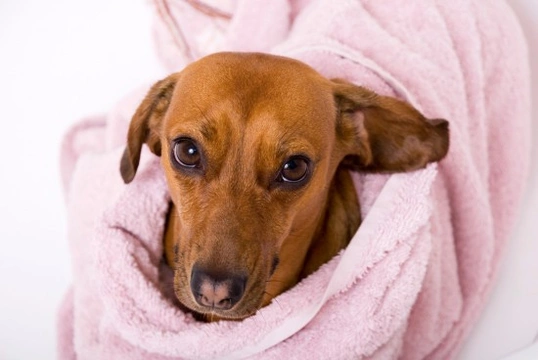
Some common canine care and behaviour myths
Old wives tales have a lot to answer for, and in many cases, what is often bandied about as received wisdom is completely incorrect or even harmful! Nevertheless, there are several myths and half-truths that are still widely spread regarding dog care and canine behaviour, and the thinking dog owner should do what they can to learn the truth behind them in order to make informed choices for their own dog. Read on to learn more about some of the most widely spread myths and half-truths about dogs and canine care.
Dogs should be bathed frequently
If your dog is filthy, smells bad or has dirty skin, then the chances are that they do indeed need a bath, as normal brushing or your dog’s own self-grooming routine is unlikely to get them properly clean. But don’t fall into the trap of bathing your dog for the sake of it, as bathing too frequently can strip the skin of its natural oils and lead to irritations and doggy dandruff. If your dog is not dirty, he does not need a bath! Grooming your dog regularly with a brush can help to keep them clean and keep the coat in good condition, and it can help to improve circulation to the skin as well.
Bad breath is normal for dogs
It is a complete myth that dragon breath and bad teeth are normal, healthy states for the dog, and believing this myth can have wide reaching health consequences. Try to get your dog used to a teeth cleaning routine when they are young, feed them dental snacks, and provide opportunities to chew on things that can help to keep the teeth clean and healthy. If your dog’s teeth are rotting, their breath is bad, their gums are inflamed or they have trouble eating, they will need to undergo a thorough dental cleaning procedure at the vets.
A wagging tail means a friendly dog
Friendly dogs do indeed have waggy tails, but not all wagging tails indicate that a dog is friendly or will be amenable to your approach! Wagging tails can also indicate excitement, submission, anxiety or appeasement, so look to the head and other body language of the dog to translate the meaning of that wagging tail, in order to avoid stressing out a nervous dog or risking a nip!
Garlic will get rid of intestinal worms
Before the advent of modern worming preparations to help to deal with intestinal worms, it used to be widely thought that supplementing your dog’s food with garlic would somehow repel worms or eradicate them from the body! However, garlic does absolutely nothing to eradicate or repel worms, so don’t fall into this trap- proper professional wormers are the way to go! Garlic does, however, potentially offer a range of other health benefits, and can help to make your dog less appealing to midges and biting bugs during the summer.
Eating grass means my dog is sick
Eating grass may make your dog vomit on occasion, but grass eating does not necessarily indicate that your dog is unwell. Veterinary surgeons and canine experts still are not sure why dogs eat grass, particularly as it sometimes triggers vomiting, but grass eating is a natural canine behaviour that may even have health benefits of its own. There is no reason to try to prevent your dog from eating grass, but if your dog eats grass every day or vomits a lot, it may be worth getting them checked out by the vet.
Licking helps to heal wounds
The phrase “to lick one’s wounds” originated from the observation of dogs, who will lick broken skin or injured areas in order to promote healing and to soothe themselves. A minor amount of licking of a minor wound can indeed help to heal the skin, thanks to the enzymes present within your dog’s saliva. However, excessive licking can actually make a problem worse, by introducing infection or not giving the wound enough of a chance to heal, which is why dogs who have undergone veterinary treatments will sometimes be sent home with a buster collar to prevent licking.
A dry nose indicates ill health
Having a cold, wet nose is often viewed as one of the core indicators of good health in the dog, and it is ergo sometimes thought that a warm, dry nose indicates illness. However, how wet or cold your dog’s nose is does not bear any relation to their health in reality- plenty of sick dogs still have a cold wet nose, and having a dry nose does not necessarily mean that they are sick. Dogs’ noses dry out while they are asleep, so you are highly likely to observe that your dog has a dry nose when they have just woken up, and this is perfectly normal!



